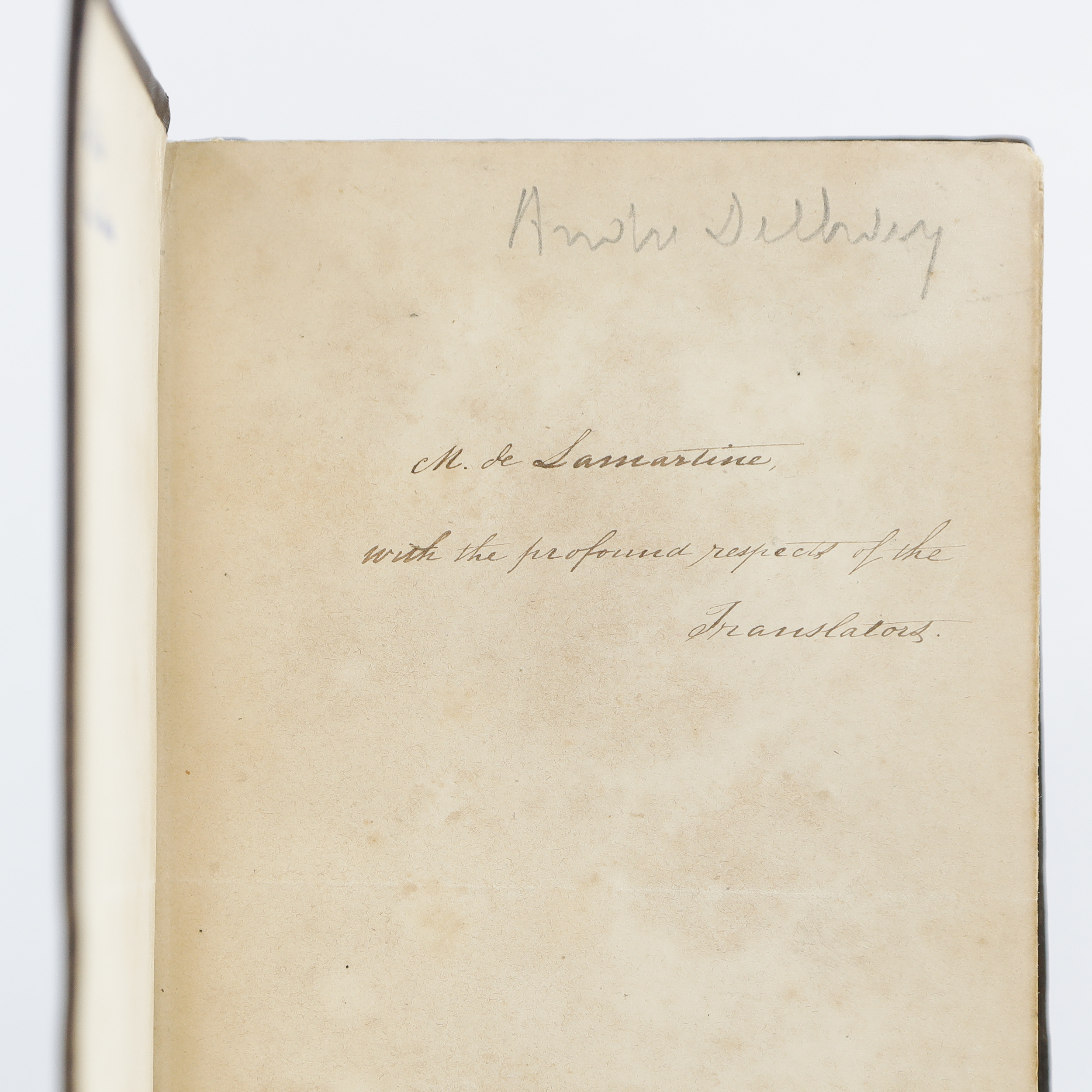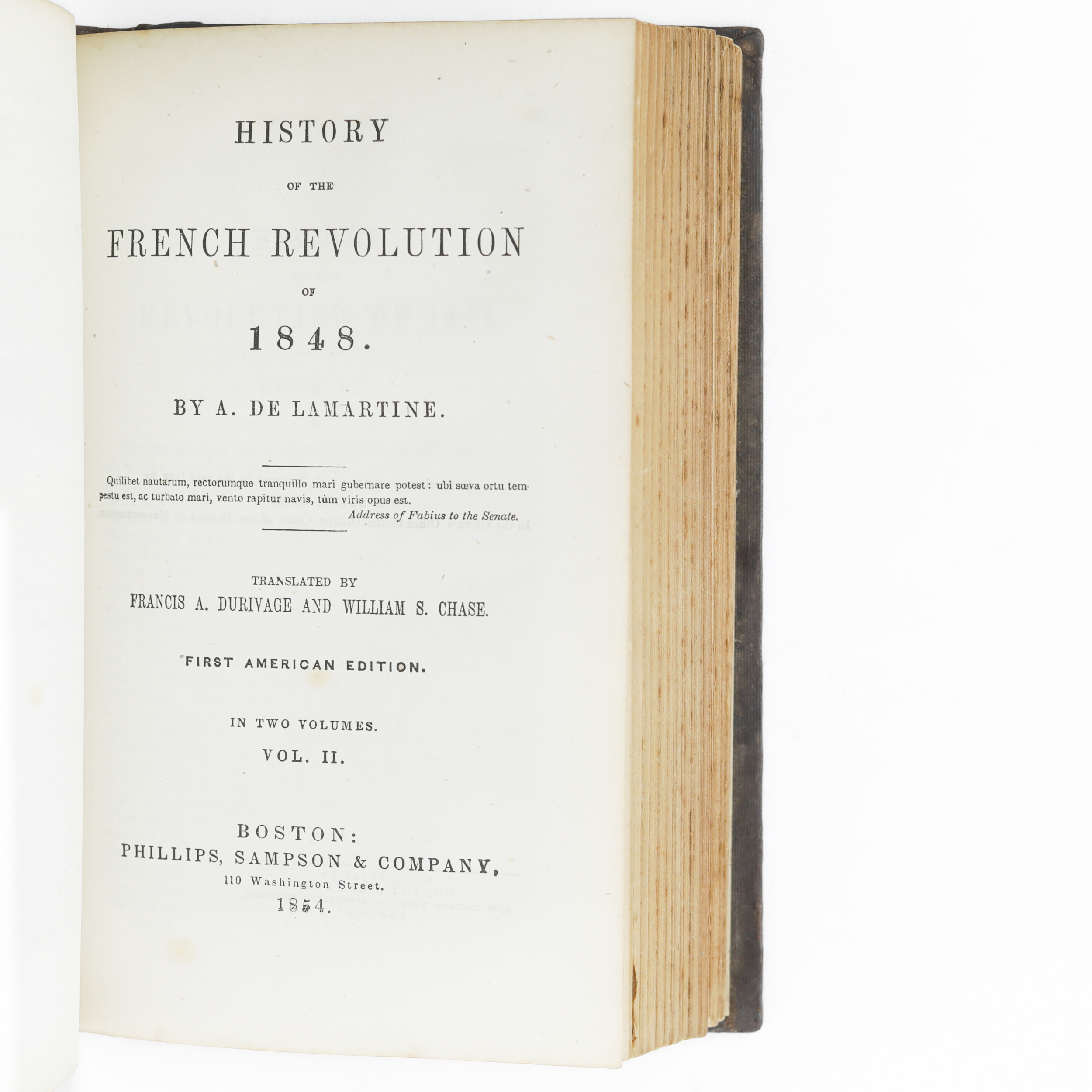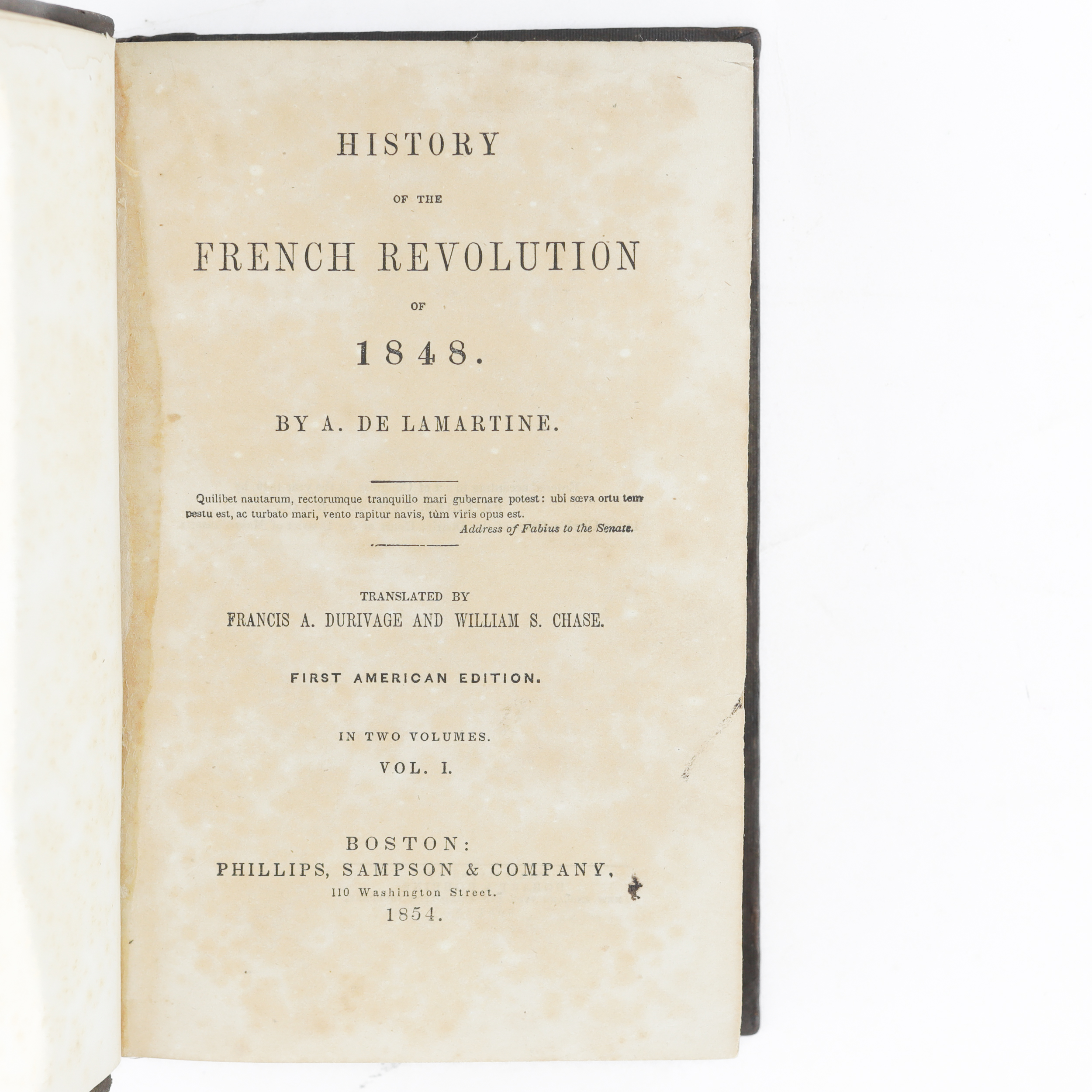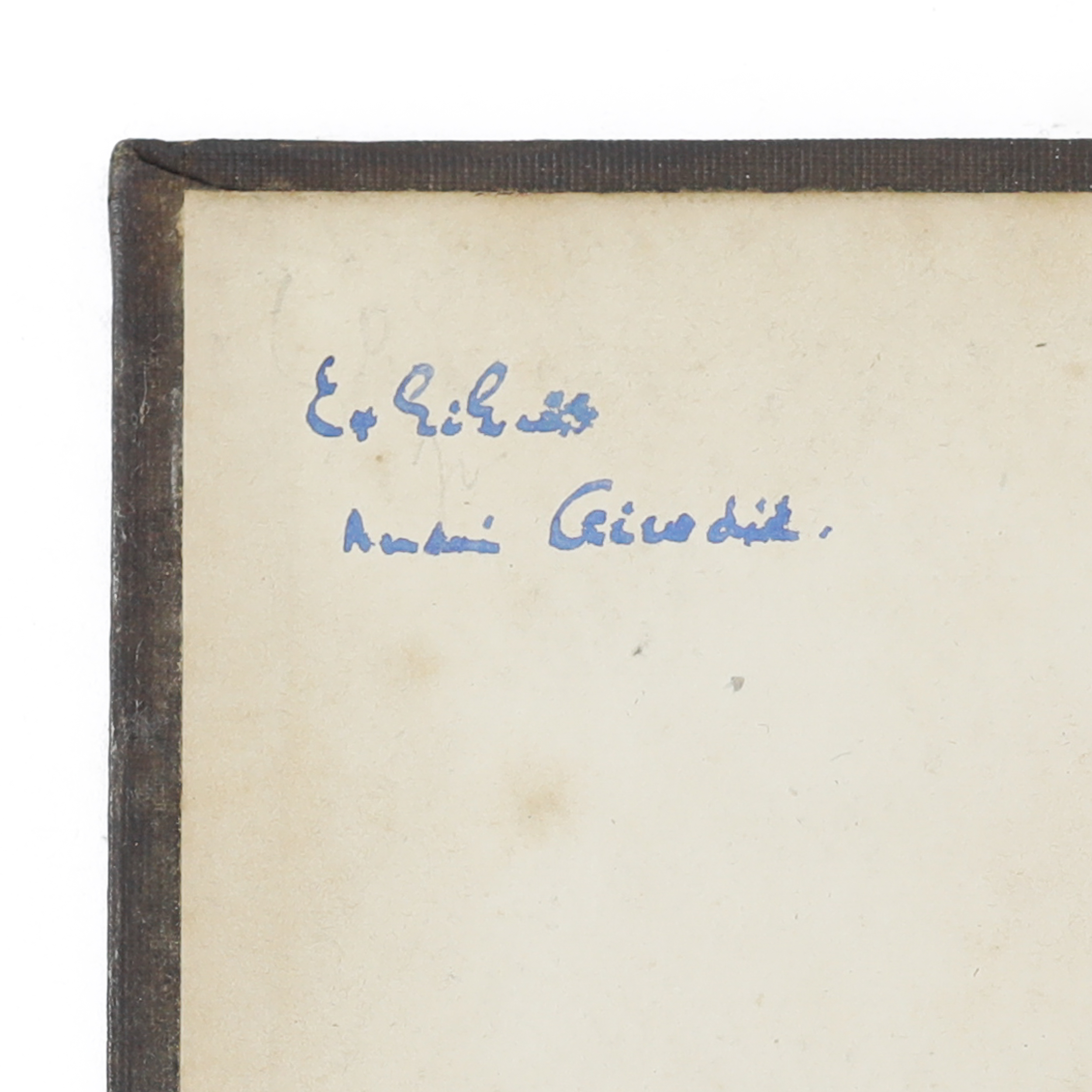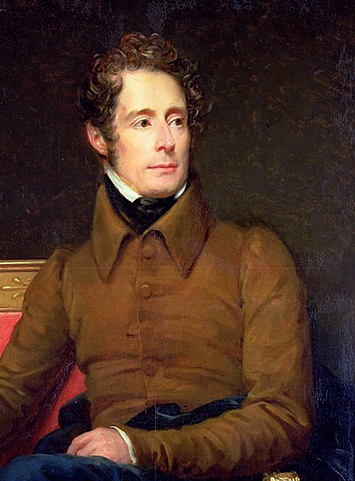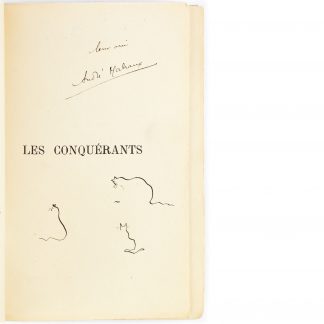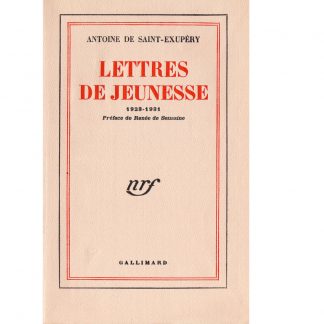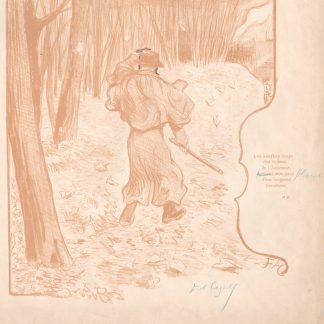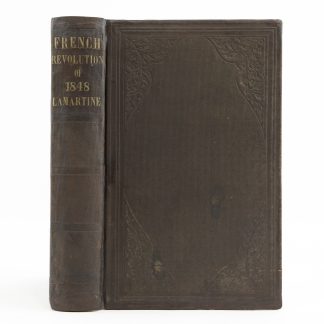Description
ÉDITION ORIGINALE AMÉRICAINE traduite par Francis A. Durivage et William S. Chase.
L'EXEMPLAIRE DE LAMARTINE, avec un envoi des traducteurs :
"M. de Lamartine
with the profound respect of the translators"
Né en 1790, Lamartine atteignit la renommée à la publication de son chef-d'oeuvre, Les Méditations Poétiques (1820). Reçu Chevalier de la Légion d'Honneur en 1825, il fut élu membre de l'Académie française en 1829.
Vers 1830, les opinions de Lamartine devinrent plus libérales. Élu à l'Assemblée Nationale en 1833, il fonda rapidement son propre "parti social" influencé par le Saint-Simonisme et devint l'un des principaux critiques de la Monarchie de juillet.
Lors de la révolution de 1848, Lamartine occupa brièvement le poste de Ministre des Affaires Étrangères. Face à une foule enragée qui réclamait le remplacement du drapeau français par un drapeau rouge, il prononça un discours qui joua un rôle majeur dans le développement des événements de février. Sa popularité monta en flèche et il inspira aussi bien sa nation que le reste du monde. Dans les termes de la Democratic Review, Lamartine s'éleva "like the spirit of the storm-king riding triumphantly on the tempestuous deep, bidding the winds and waves of popular tumult to hush, and cease their murmuring; - then by his impassioned eloquence… did he breast and stay that onward march of death"
Larry J. Reynold remarque, dans European Revolutions and the American Literary Renaissance : "To many Americans, Lamartine seemed, especially after the Red Revolution, a heroic man of peace, a living part of heaven, like the sky hawk of Moby Dick, too divine for the world of men".
En effet, ses admirateurs étaient nombreux : James Russell Lowell, dans son Ode To Lamartine, 1848 ; Magaret Fuller dans la Tribune; et surtout Walt Whitman, comme éditeur de plusieurs numéros du Brooklyn Daily Times: "More and more noble grows the character of Lamartine, the more he is round with trials, and the greater the dangers that menace him. It is beautiful to see such a man ! It works out a stronger argument against Kings than all the philosophy of the most scholastic radicals. For where is there - where has there ever been - such King !"
Cette vision de Lamartine eut un impact considérable sur la littérature américaine, et influença par exemple le recueil Leaves of Grass de Walt Whitman ou le Moby Dick de Melville.
De la bibliothèque d'André Girodie (ex-libris manuscrit), historien de l'art du XVIIIe siècle spécialisé dans les arts décoratifs sur bois et l'Alsace, bibliothécaire et conservateur de musée.
FIRST AMERICAN EDITION translated by Francis A. Durivage and William S. Chase.
ALPHONSE LAMARTINE 's copy, inscribed by the translators :
"M. de Lamartine
with the profound respect of the translators"
Born in 1790, Lamartine became famous after the publication of his masterpiece, Les Méditations Poétiques (1820). Ordered Chevalier of the Legion of Honour in 1825, he was elected as a member of the Académie française in 1829.
Around 1830, Lamartine's opinions shifted in the direction of liberalism. When elected in 1833 to the National Assembly, he quickly founded his own "Social Party" influenced by Saint-Simonian ideas and established himself as a prominent critic of the July Monarchy.
During the 1848 French Revolution, Lamartine was briefly in charge of the government as Minister of Foreign Affairs. Before a raging crowd wanting to replace the French flag with a red flag, he delivered a speech which played a major role in the events of February— his popularity soared and his leadership inspired his nation and the world. As the Democratic Review put it, Lamartine arose "like the spirit of the storm-king riding triumphantly on the tempestuous deep, bidding the winds and waves of popular tumult to hush, and cease their murmuring; - then by his impassioned eloquence… did he breast and stay that onward march of death"
Larry J. Reynold remarks in European Revolutions and the American Literary Renaissance : "To many Americans, Lamartine seemed, especially after the Red Revolution, a heroic man of peace, a living part of heaven, like the sky hawk of Moby Dick, too divine for the world of men".
Indeed, many commentators praised Lamartine: James Russell Lowell, in his Ode To Lamartine, 1848; Magaret Fuller in the Tribune; and mainly Walt Whitman, as editor in numerous issues of the Brooklyn Daily Times: "More and more noble grows the character of Lamartine, the more he is round with trials, and the greater the dangers that menace him. It is beautiful to see such a man ! It works out a stronger argument against Kings than all the philosophy of the most scholastic radicals. For where is there - where has there ever been - such King !"
This vision of Lamartine had a considerable impact on American literature, influencing for example Walt Whitman's Leaves of Grass, or Melville's Moby Dick.
From the library of André Girodie (handwritten ex-libris), XVIIIth century art historian specialized in wood decorative arts and Alsace, librarian, and museum curator.
Publisher's brown percaline binding, flat spine, gilt title. Restoration on the spine heads. Foxing.
Reliure éditeur, pleine percaline marron, dos lisse, titre doré.
Coiffes restaurées, piqûres.


